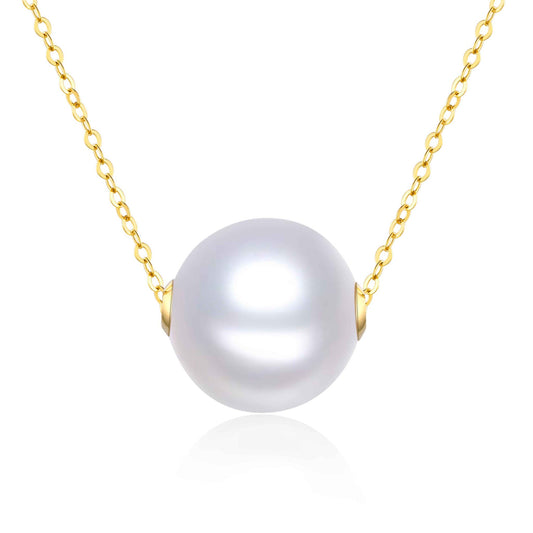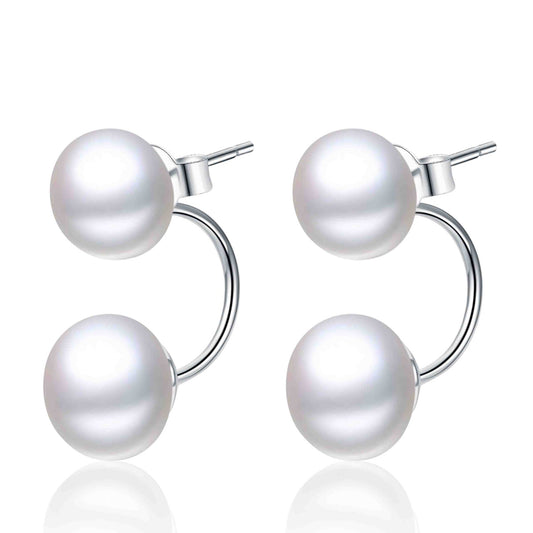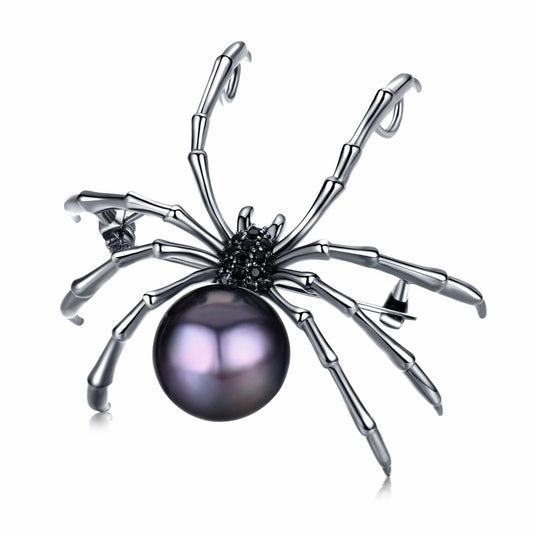
Bette Davis: She Did It the Hard Way
Share
Hardships and controversy could not dim her light.
Sometimes the obstacles on our road just seem too many, or too difficult. But pearls teach us that with quiet determination and hard work, no obstacle is too big. Oysters work for months to fix a big problem in the safety of their tiny shell: a grain of sand or an implanted bead. The outcome of all that hardship is a shimmering pearl. We believe that people are like oysters, and that hard times can help us channel our energies in such a way that we leave our own pearlescent legacy. In honor of this unique human quality, we have started a series to look at some of the women who have lived their lives like pearls. This is the fourth part of the Living like a Pearl series. Find the other stories here.
--------
They called her difficult. She failed her first screen test and didn’t impress with the second – they accused her of trying to ‘use her chest’ to get a job. She had to find her own way to Universal Studios when she arrived in Hollywood at age 22, because the studio representative that was sent to pick her up left, saying he “didn’t see anyone who looked like an actress.” After a year in which she took on six unsuccessful films, they let her go.
Did you ever imagine a story about the classic Hollywood star Bette Davis would start like that? But if there ever was a woman who lived her life like a pearl, it was Davis. Time after time, her career was hit with controversy or difficulty, but she forged ahead like an oyster patiently working at the pearl inside.
Davis’ fame grew steadily when she joined Warner Brothers. But soon, during those very first years, she sued them. She argued the roles they were forcing her to play limited her abilities. She lost the court case and was forced to return to Hollywood, in debt, and without the promise of work. And she jumped straight back in like she would many times after. One of the first roles after the court case was that of a prostitute, a role that earned her the Volpi Cup at the Venice Film Festival.
Davis became known for pushing herself to the limit to achieve acting perfection. The role of Mildred Rogers in Of Human Bondage is a good example. At the time actresses were careful of taking roles that could portray them in a bad light and Mildred Rogers was exactly such a role: a loose, careless, harsh character. But Davis accepted and even insisted that the character’s death scene be portrayed realistically because “the last stages of consumption, poverty, and neglect are not pretty, and I intended to be convincing-looking.” She is said to have favored authenticity over being liked.
Her lifelong feud with the actress Joan Crawford was widely publicized. So famous was the tension between them that it was turned into a miniseries in 2017, titled Feud and starring Susan Sarandon and Jessica Lange as Davis and Crawford.
Some of her films were huge successes, others received harsh criticisms. Her fights were not limited to those with Joan Crawford. There are several tales of Davis walking off the set or making filming difficult for crew due to disagreements with co-workers. She reportedly said that unlike her contemporaries, she had forged a career without the benefit of beauty.
She suffered personal setbacks too. Her first husband died unexpectedly, leaving her with two young children. And as if life had to hand her one last fight, her daughter B.D. Hyman released a scathing book about Davis four years before her death, titled ‘My Mother’s Keeper.” In her own memoir, Davis said it was worse than the stroke she had also suffered, as she could recover from the stroke, but not her daughter’s words.
Yet, she seemed to accept that these kinds of hardships were part of the road of life. In a 1982 interview with Johnny Carson on The Tonight Show, she says that her goal was never to be liked.
“If you’re never criticized, if everyone says well, that’s a nice actress, then you’ve had it. You must have pros and you must have cons. And heaven knows, I’ve had cons.”
She died in 1989 at the age of 81 and her tombstone reads: “She did it the hard way.”
In her life, Davis worked on over a hundred films. She was nominated for ten Academy Awards of Best Actress and won two Oscars. She was the first woman to receive a lifetime achievement award from the American Film Institute. There’s even a popular song named after her: Bette Davis Eyes. And she will forever be known as one of the biggest stars of the classic Hollywood era.



